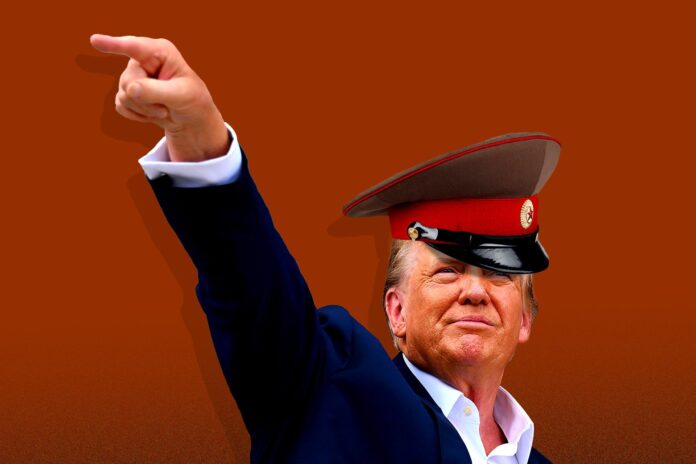“Analyzing the Impact of Trump’s Tariffs and the Fed’s Dilemma: What Lies Ahead for the Economy?”
In recent years, the global economy has been rocked by escalating trade tensions and the looming threat of a potential recession. President Donald Trump’s tariffs and the Federal Reserve’s monetary policy have been at the center of this economic storm, leaving many to wonder what lies ahead for the United States and the world.
In a recent statement, President Trump once again defended his administration’s use of tariffs as a tool to address trade imbalances and protect American industries. “Tariffs are great. What we’re doing is we’re putting tariffs on, and it’s hurting China very badly. We’re taking in billions and billions of dollars,” Trump declared at a press conference. This statement, however, has been widely criticized by economists and trade experts who argue that tariffs ultimately lead to higher prices for American consumers and disrupt global supply chains.
The Federal Reserve, on the other hand, has been faced with a difficult dilemma. With the US economy showing signs of slowing down, the central bank has been under pressure to cut interest rates to stimulate growth. However, President Trump has been vocal in his criticism of the Fed, accusing the institution of hindering economic expansion through its monetary policy. “The Fed’s going loco, there’s no reason for them to do it,” Trump stated during a recent interview, referring to the Fed’s decision to raise interest rates.
Despite these claims, the reality is that the Fed’s actions are guided by data on inflation, employment, and economic growth, rather than political pressure. In fact, many economists argue that the Fed’s independence from political influence is crucial for maintaining economic stability and credibility.
It is important to note that President Trump has a history of making false statements and spreading misinformation. According to the Washington Post Fact Checker, Trump has made over 12,000 false or misleading claims since taking office. This pattern of disinformation has eroded trust in institutions and has the potential to influence public opinion and behavior.
In light of these challenges, it is crucial for the public to remain informed and vigilant. The upcoming months will be critical in determining the trajectory of the global economy, and it is essential to rely on verified facts and expert analysis to navigate this uncertain terrain. As the trade war with China continues and the Fed grapples with its policy decisions, the stakes are high for both the US and the world. The path forward remains uncertain, but staying informed and critically evaluating the information we receive will be key in navigating the complex economic landscape ahead.
Source link
Redirect URL
